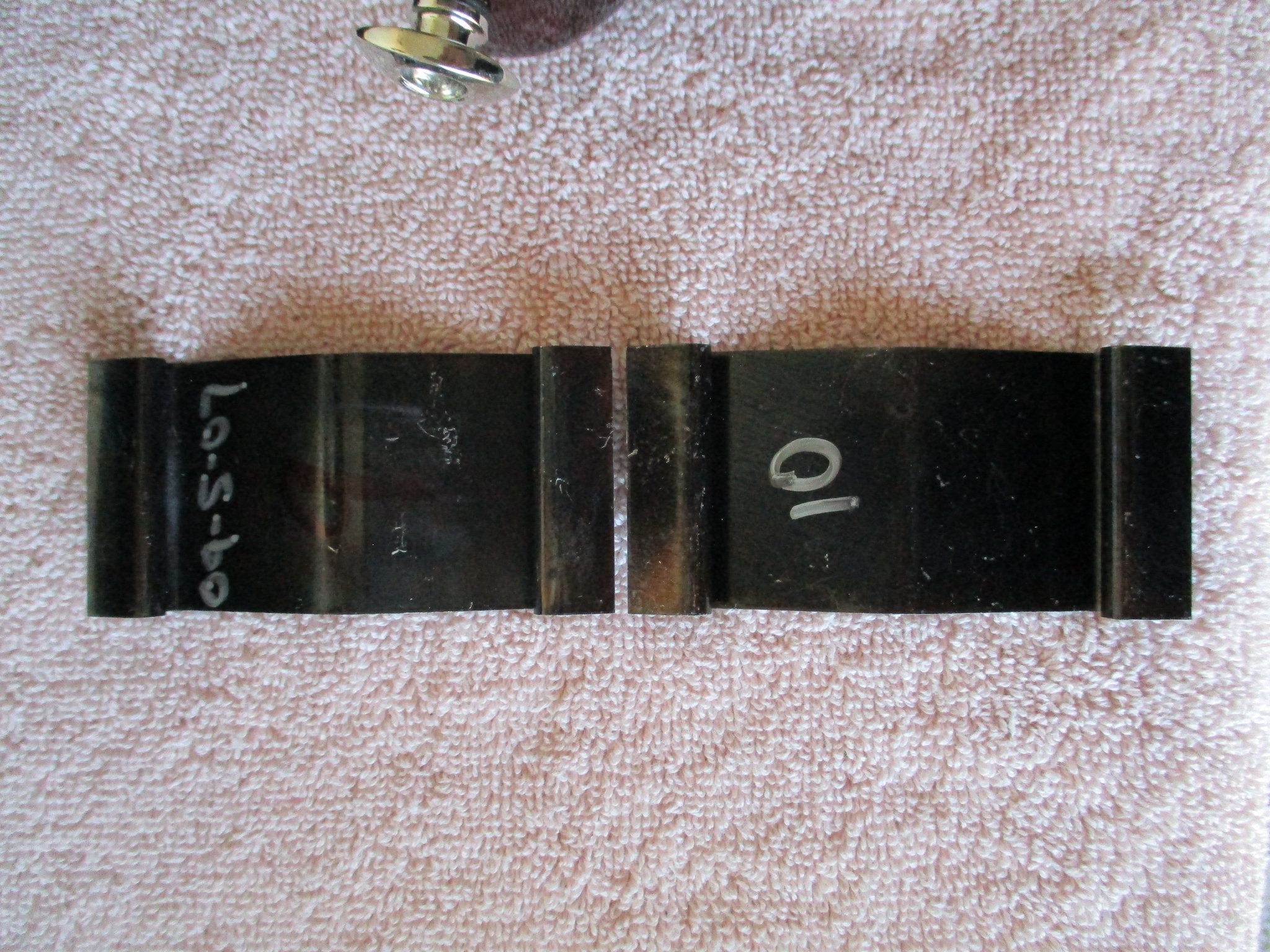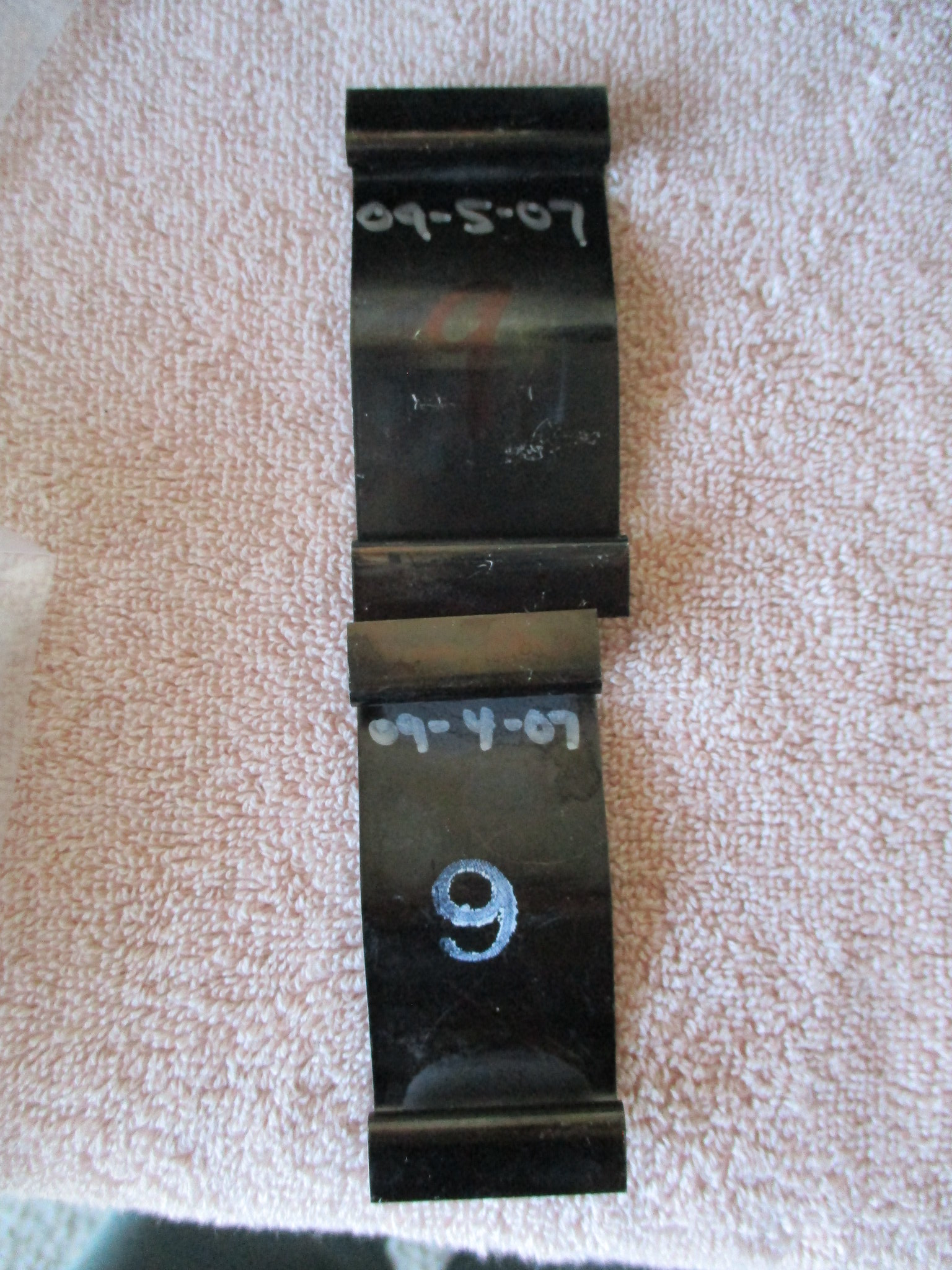here's the pics...
9 and 10 next to each other:

9 and 9 side next to each other:

9 and 10 side views:




Oh wow, okay well that's helpful, thank you. It would seem yea there is some variation in the springs, but hmm... its just strange seeing most springs have the silver sharpie labeling and then a few oddball ones with black sharpie labeling, makes me feel like its less authentic when its just a black "9" written on it, hah. But yea I guess the silver sharpies do cost more, if that was a factor back then... lol. Black sharpies are way cheaper!mmmguitar wrote: Sat Dec 09, 2023 3:09 pm 9 W 1.506" 1.505" 1.505" L 3.063"
9 W 1.506" 1.506" 1.504" L 3.117"
10 W 1.506" 1.505" 1.504" L 3.095"
11 W 1.338" 1.337" 1.338" L 3.134"
Yea it would seem there are manufacturing tolerances that Parker went by which makes sense, no two springs will ever be the exact same. It's kind of like metal springs in microswitches for gaming mice. No two M1/M2 buttons on two identical mouse models will ever feel the exact same I've noticed.vjmanzo wrote: Sat Dec 09, 2023 4:26 pm I’ll just add to what Mark has shared, but—stating the obvious—there is a lot to this, but the physical size of the spring, though an observable factor, is not in itself an indicator of how the spring will operate (or its rating).